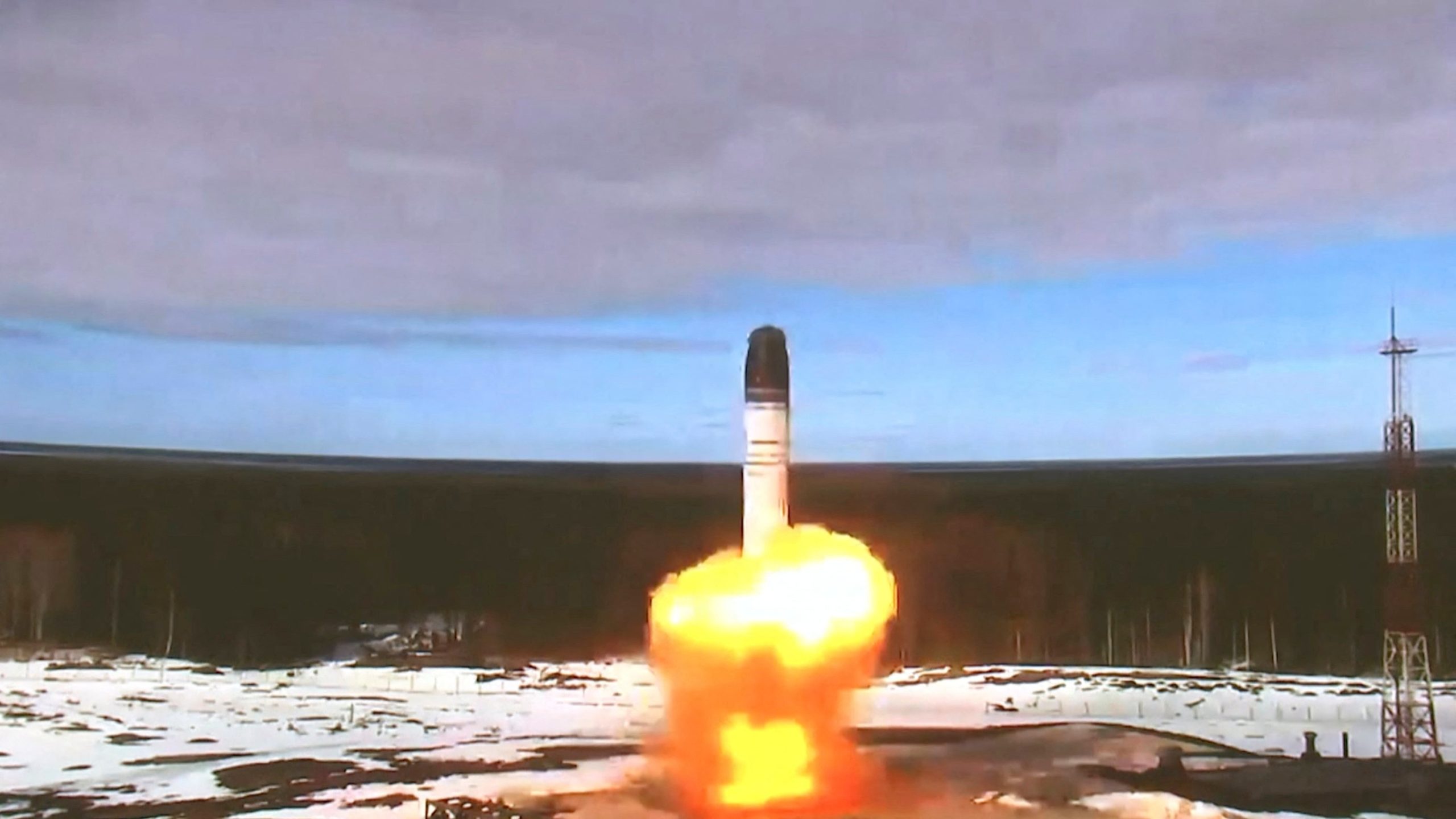
Willie R. Tubbs, FISM News
[elfsight_social_share_buttons id=”1″]
Russian President Vladimir Putin continues to bolster his reputation as a geopolitical bully, using the threat of nuclear annihilation as a permanent trump card in his dealings with international entities.
On Wednesday, following the test of Russia’s newest intercontinental ballistic missile (ICBM), one that could be equipped with a nuclear warhead, Putin appeared on television to call the weapon the world’s best.
“The new complex has the highest tactical and technical characteristics and is capable of overcoming all modern means of anti-missile defense,” Reuters quoted Putin as saying. “It has no analogues in the world and won’t have for a long time to come.
“This truly unique weapon will strengthen the combat potential of our armed forces, reliably ensure Russia’s security from external threats and provide food for thought for those who, in the heat of frenzied aggressive rhetoric, try to threaten our country.”
Russian President Vladimir Putin says the nuclear-capable missile launch was food for thought for those who try to threaten his countryhttps://t.co/kqcYc8nUm2 pic.twitter.com/Hwiw57ELIa
— BBC News (World) (@BBCWorld) April 21, 2022
The comments are the most recent in which Putin has used Russia’s nuclear capabilities as a threat in an attempt to keep the West from further taking further actions in response to the Kremlin’s invasion of Ukraine.
On March 22, Putin spokesperson Dmitry Peskov told CNN that Russia could use nuclear weapons if it deemed that there was an “existential threat” to the country.
Stateside, the Department of Defense downplayed the event with Pentagon Press Secretary Jack Kirby issuing a brief statement that Russia had duly notified the U.S. of its intention to test what is known as the Sarmat missile.
“Russia properly notified the United States … that it planned to test this ICBM,” Kirby said. “Such testing is routine and was not a surprise. We did not deem the test to be a threat to the United States or its allies. The Department remains focused on Russia’s unlawful and unprovoked aggression against Ukraine.”
Neither the Department of Defense nor White House Press Secretary Jen Psaki offered a response to Putin’s “food for thought” remark. During her Wednesday press conference, Psaki said Russia had made the U.S. aware of the test and that “the timing of the scope of Russia’s missile tests do not influence our approach to countering Russia’s further invasion of Ukraine.”
Wednesday’s announcement, which was largely a thinly-veiled threat on the part of Putin, gave further credence to a warning offered last month by Lt. Gen. Scott Berrier, director of the Pentagon’s Defense Intelligence Agency, who predicted that Russia intended to use the threat of nuclear escalation as a cudgel to force its international rivals into capitulating to Russian demands.
“As this war and its consequences slowly weaken Russian conventional strength,” Berrier said, “Russia likely will increasingly rely on its nuclear deterrent to signal the West and project strength to its internal and external audiences.”
